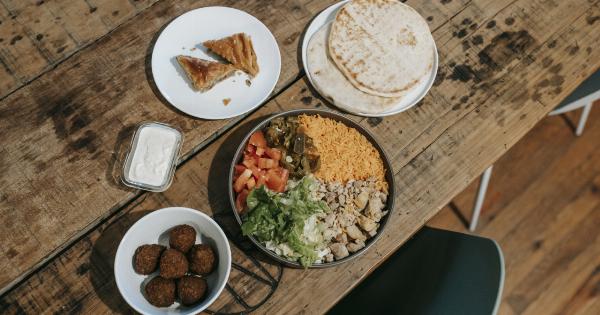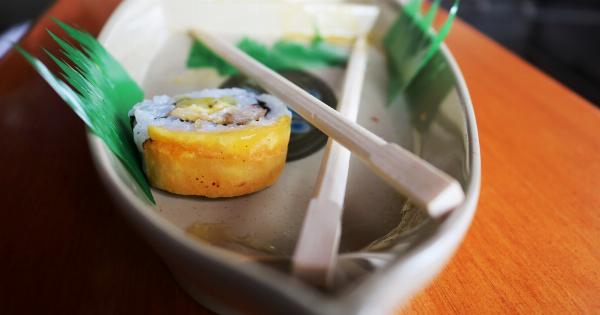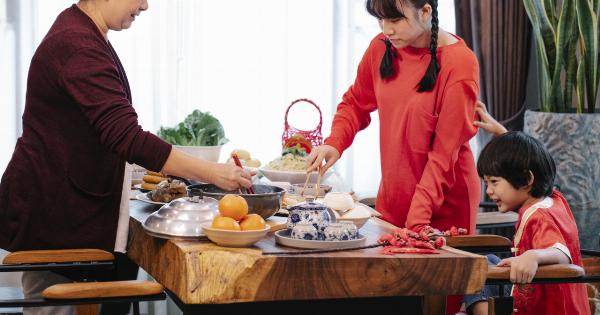Rice is a staple food for many people around the world, but it can also be a source of food poisoning if not handled safely. Food poisoning is a common problem that occurs when food is contaminated by harmful bacteria, viruses or other pathogens.
Some of the common symptoms of food poisoning include nausea, vomiting, diarrhea, and stomach pain. In this article, we will discuss some of the precautions that you can take to avoid food poisoning from rice.
1. Choosing the Right Rice
The first step to ensuring rice safety is to choose the right type of rice.
Always look for rice that is labeled as “safe” or “properly processed.” This will help to ensure that the rice has been processed and packaged according to the safety standards set by the authorities in your country. Avoid buying rice that seems to be damaged, discolored, or has an unusual smell as these could be signs that the rice is not safe to consume.
2. Storing Rice Safely
Proper storage is important to prevent the growth of harmful bacteria on rice. Store rice in a cool, dry place away from direct sunlight, moisture, and heat. Keep the rice in an airtight container to prevent contamination from other food items.
Do not store cooked rice for too long as it can quickly become a breeding ground for bacteria. Leftover rice should be stored in the refrigerator within two hours of cooking and consumed within two days.
3. Washing Rice Properly
Washing rice before cooking is a common practice, but it should be done properly to avoid contamination. Rinse the rice in clean, running water until the water comes out clear.
Do not let the rice soak in water for too long as this can make it more susceptible to bacterial growth. Avoid washing rice before storing it as this can increase the moisture content of the rice and promote bacterial growth.
4. Cooking Rice Thoroughly
Cooking rice thoroughly is important to eliminate any harmful pathogens that may be present. Follow the cooking instructions on the packaging and cook the rice until it is soft and fluffy.
Use a clean spoon to stir the rice occasionally during the cooking process to ensure that it is evenly cooked. Do not leave cooked rice at room temperature for too long as this can increase the risk of bacterial growth.
5. Handling Cooked Rice Safely
Handling cooked rice safely is just as important as safe handling of raw rice. Once cooked, rice should be stored in an airtight container and refrigerated within two hours.
Do not leave cooked rice at room temperature for too long as this can promote bacterial growth. When reheating cooked rice, make sure that it is heated all the way through and is piping hot before consumption.
6. Avoid Cross-Contamination
Cross-contamination is the transfer of harmful bacteria from one surface to another, which can contaminate food items. To avoid cross-contamination, always use clean utensils and surfaces when handling rice.
Do not mix cooked and raw rice together, or use the same utensils to handle both. Always wash your hands thoroughly before and after handling rice.
7. Be Careful with Leftover Rice Dishes
Leftover rice dishes such as fried rice and rice salads can be a source of food poisoning if not handled carefully. Make sure that leftover rice dishes are refrigerated within two hours of cooking and are consumed within two days.
When reheating leftover rice dishes, make sure that they are heated all the way through and are piping hot before consumption.
8. Check the Expiration Date
Always check the expiration date on the rice package before purchasing it. Eating expired rice can increase the risk of food poisoning. Check for any signs of deterioration such as changes in color or smell before consuming.
9. Be Mindful When Eating Rice from Outside
Rice dishes from outside, such as sushi and biryani, can be contaminated if not prepared or stored properly. Only purchase food from reputable sources that follow proper food safety practices.
Be mindful of the temperature of the rice dishes and only consume them if they have been properly cooked and are piping hot.
10. Be Vigilant While Traveling
Rice safety is especially important when traveling to countries where food safety regulations may not be as strict. Be vigilant when eating rice dishes from outside and only consume them from reputable sources that follow proper food safety practices.
Always wash your hands thoroughly before and after handling rice, and avoid eating rice that has been stored at room temperature for too long.


























